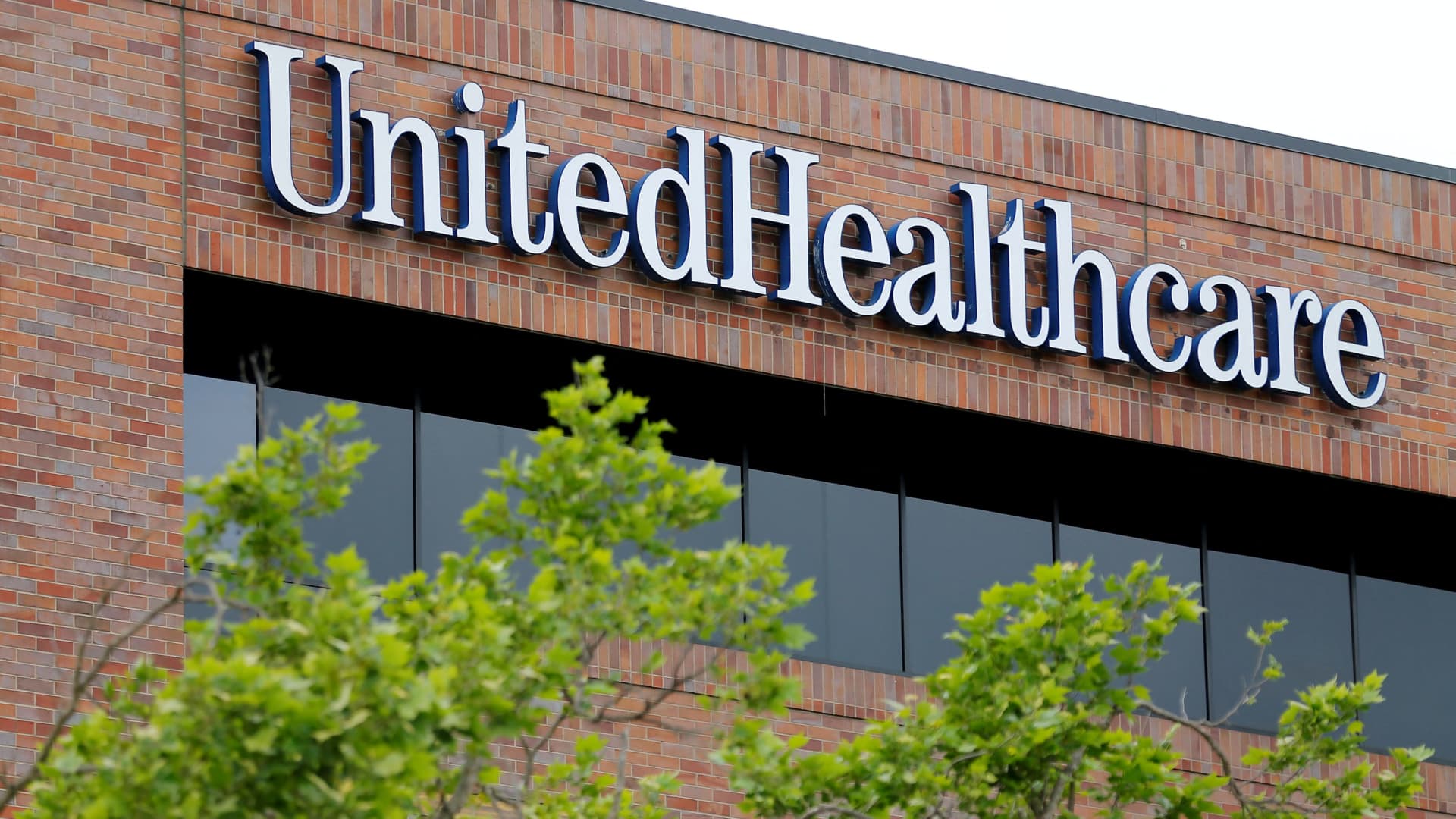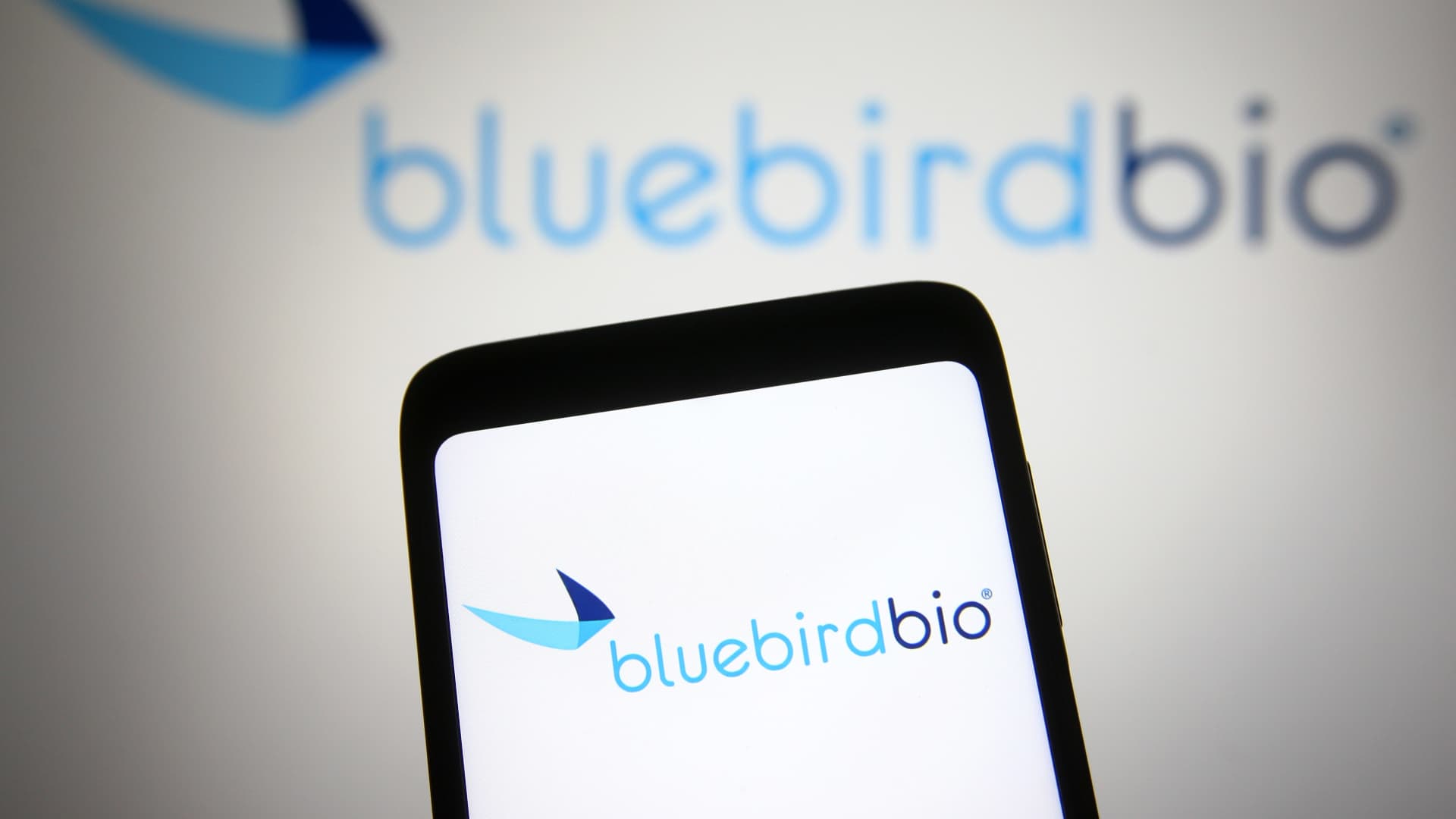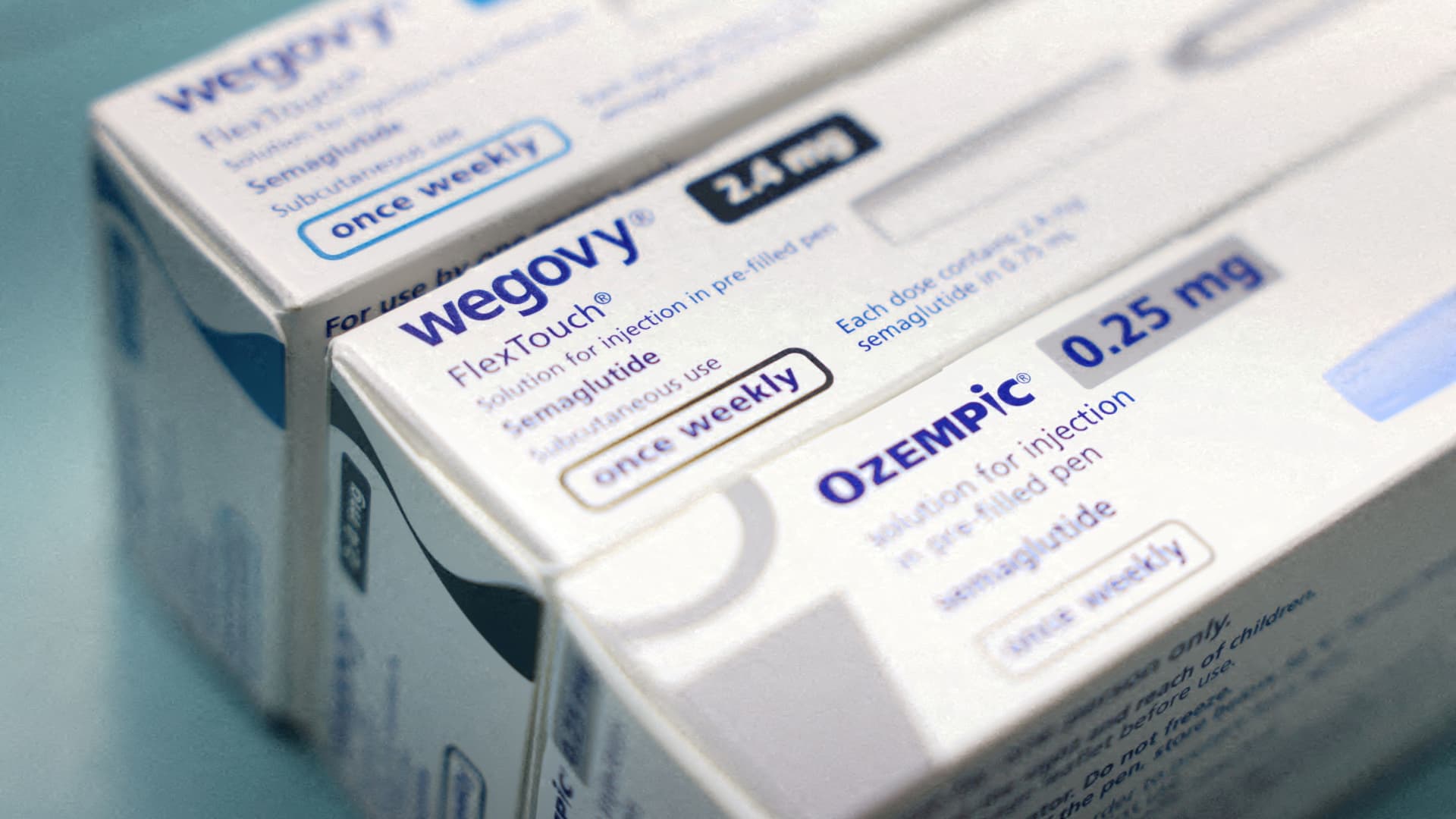Global Trends and Politics
UnitedHealth Faces DOJ Investigation, Buyouts, Stock Price Drop

UnitedHealthcare in Hot Water as Government Probes Its Medicare Billing Practices and More
UnitedHealthcare is facing another tumultuous period as the insurance giant grapples with a reported government investigation into its Medicare billing practices, pursues employee buyouts and potential layoffs, and clashes publicly with billionaire Bill Ackman.
The latest developments come on the heels of a tumultuous year for UnitedHealth Group, marked by the killing of a top executive, a costly cyberattack against its subsidiary, and high medical costs in its insurance arm. UnitedHealth Group is the largest healthcare conglomerate in the US, with a market cap of over $420 billion, and UnitedHealthcare is the nation’s largest private insurer.
Government Investigation
The Department of Justice has launched a civil fraud investigation into UnitedHealth’s billing practices for its Medicare Advantage plans, according to a report by The Wall Street Journal. The probe examines whether diagnoses were routinely made to trigger extra payments in these plans, including at physician groups the insurer owns.
The investigation comes after a series of articles by the Journal last year, which reported that Medicare paid UnitedHealth billions of dollars for questionable diagnoses.
Employee Buyouts and Potential Layoffs
In a separate development, UnitedHealthcare is offering buyouts to employees and considering potential layoffs to cut costs. The move aims to leverage digital technology and reduce expenses.
Clash with Bill Ackman
The company is also at odds with Ackman, CEO of Pershing Square Capital Management, who has publicly pledged to cover the legal fees for a Texas doctor in a dispute with UnitedHealth Group over her claims that the company pulled her out of an operation to justify a patient’s care. Ackman has also called for the US Securities and Exchange Commission to investigate the company, suggesting that its profitability is overstated due to denial of medically necessary procedures.
Recent Events
- UnitedHealth Group’s shares have tumbled more than 20% over the last three months.
- The company’s stock closed 7% lower on Friday following the report about the probe.
- UnitedHealth has faced a series of challenges, including the killing of a top executive, a costly cyberattack against its subsidiary, and high medical costs in its insurance arm.
Conclusion
UnitedHealthcare’s current situation is a perfect storm of challenges, from government investigations to employee buyouts and potential layoffs, and public clashes with prominent investors. As the company navigates these complex issues, it remains to be seen how it will emerge in the long term.
Frequently Asked Questions
Q: What is the nature of the government investigation into UnitedHealth’s Medicare billing practices?
A: The investigation examines whether diagnoses were routinely made to trigger extra payments in Medicare Advantage plans, including at physician groups the insurer owns.
Q: What is the purpose of the employee buyouts and potential layoffs?
A: The move aims to reduce costs and leverage digital technology to improve efficiency.
Q: What is the current market performance of UnitedHealth Group’s shares?
A: The company’s shares have tumbled more than 20% over the last three months.
Global Trends and Politics
Bluebird Bio Gene Therapy Sells Itself to Carlyle and SK Capital

Bluebird Bio Sells Itself to Private Equity Firms for $30 Million
Bluebird Bio, a biotech firm that was once on the cusp of creating one-time treatments for genetic diseases, has sold itself to private equity firms Carlyle and SK Capital for approximately $30 million. The sale marks the end of Bluebird’s fall from its peak as one of the buzziest biotech firms to a company on the verge of running out of money.
The Rise and Fall of Bluebird Bio
For over 30 years, Bluebird has been at the forefront of creating one-time treatments that promised to cure genetic diseases. At one point, its market cap hovered around $9 billion as investors bought into the idea that the company could find success with its gene therapies. However, the company faced several scientific setbacks, separated its cancer work into another company, and fell into financial despair.
The Turning Point
The turning point came in 2018, when a patient who received Bluebird’s gene therapy for sickle-cell disease developed cancer. Bluebird concluded that its treatment did not cause the condition, but the revelation started a series of questions surrounding the safety of its DNA-altering treatments.
Challenges and Setbacks
Bluebird also faced pushback from European payers after pricing its gene therapy for blood disorder beta thalassemia, called Zynteglo, at $1.8 million per patient. The company withdrew the treatment from Europe in 2021, just two years after it was approved there. Bluebird said it would instead focus on the US, where it was preparing for the approval of Zynteglo for beta thalassemia, Lyfgenia for sickle cell disease, and another therapy Skysona for a rare brain disease called cerebral adrenoleukodystrophy.
Approval of Gene Therapies
All three of these gene therapies were approved in recent years, but none of them have been able to ease Bluebird’s financial woes. The company had been spending hundreds of millions of dollars a year. Offloading Bluebird’s cancer treatments into new company 2Seventy Bio also eliminated an important source of revenue.
The Sale
At last update in November, Bluebird said its cash would fund the company’s operations into the first quarter of this year. The sale marks a stark reversal of Bluebird’s past performance. The upfront price of about $30 million is a fraction of the $80 million Bluebird’s former CEO Nick Leschly made from selling the company’s stock during his time there.
Conclusion
Bluebird’s treatments could still change many lives. They just weren’t enough to change the company’s fate. The entire field is facing tough questions right now about whether companies can translate the promise of one-time treatments for rare diseases into viable businesses.
Frequently Asked Questions
Q: Why did Bluebird Bio sell itself?
A: Bluebird Bio sold itself to private equity firms Carlyle and SK Capital for approximately $30 million.
Q: What happened to Bluebird Bio’s stock price?
A: Bluebird’s stock price fell 40% on Friday after the company announced the sale.
Q: What is the future of Bluebird’s gene therapies?
A: Although Bluebird’s gene therapies were approved, they did not generate enough revenue to save the company. The company’s treatments could still change many lives, but they were not enough to change the company’s fate.
Global Trends and Politics
The Role of Business in Politics: A Call to Action for Corporate Social Responsibility

Introduction
As the world becomes increasingly interconnected, the role of business in politics has grown more complex. With the rise of globalization, multinational corporations are no longer just economic entities, but also significant players in the political landscape. The question is: what is the responsibility of these corporations, and how can they best contribute to the greater good?
The Rise of Corporate Social Responsibility
In recent years, the concept of corporate social responsibility (CSR) has gained prominence. CSR refers to the idea that businesses have a responsibility to go beyond their traditional role of generating profits and contribute to the betterment of society. This can be achieved through various means, such as philanthropy, environmental sustainability, and community engagement.
The Importance of Business in Politics
Businesses have a unique position in the political landscape, with the ability to influence policy and shape the direction of our societies. This is particularly evident in the era of globalization, where corporations have the power to shape international trade agreements, influence government policies, and contribute to the global economy.
The Challenges of Business in Politics
However, the role of business in politics is not without its challenges. There are many risks and complexities that come with being a significant player in the political arena, including the potential for corruption, abuse of power, and reputational damage. Additionally, there is the risk of being seen as too powerful, leading to resentment and backlash from the public and governments.
A Call to Action for Corporate Social Responsibility
So, what can businesses do to navigate these challenges and make a positive impact on the world? The answer lies in corporate social responsibility. By embracing CSR, businesses can not only contribute to the greater good but also reap the benefits of a more sustainable and socially responsible approach.
Examples of Successful CSR Initiatives
There are many examples of successful CSR initiatives that demonstrate the positive impact that businesses can have on society. For instance, companies like Patagonia have made significant strides in reducing their environmental footprint, while companies like Starbucks have implemented programs to promote diversity and inclusion in the workplace.
The Future of Business in Politics
As the world continues to evolve, the role of business in politics will only become more significant. With the rise of social media and the increasing scrutiny of corporate behavior, it is crucial that businesses take a proactive approach to CSR. By doing so, they can not only improve their reputation but also contribute to a more sustainable and socially responsible world.
Conclusion
In conclusion, the role of business in politics is complex and multifaceted. While there are many challenges to navigate, the potential benefits of corporate social responsibility are significant. By embracing CSR, businesses can not only contribute to the greater good but also reap the rewards of a more sustainable and socially responsible approach. It is time for businesses to take a proactive role in shaping the future of our world, and we believe that the benefits will be well worth the effort.
FAQs
Q: What is corporate social responsibility? A: Corporate social responsibility refers to the idea that businesses have a responsibility to go beyond their traditional role of generating profits and contribute to the betterment of society.
Q: Why is corporate social responsibility important? A: Corporate social responsibility is important because it can help businesses contribute to the greater good, improve their reputation, and reap the benefits of a more sustainable and socially responsible approach.
Q: What are some examples of successful CSR initiatives? A: Some examples of successful CSR initiatives include reducing environmental footprint, promoting diversity and inclusion in the workplace, and providing community outreach and support.
Q: How can businesses get started with CSR? A: Businesses can get started with CSR by conducting a thorough assessment of their current practices, setting clear goals and objectives, and implementing initiatives that align with their values and mission.
Global Trends and Politics
FDA says Wegovy and Ozempic shortage resolved; Hims & Hers stock falls

The Long-Running U.S. Shortage of Novo Nordisk’s Wegovy and Ozempic is Resolved
The U.S. Food and Drug Administration (FDA) has announced that the long-running shortage of Novo Nordisk’s blockbuster weight loss injection Wegovy and diabetes treatment Ozempic is resolved after more than two years. The shortage was caused by a surge in demand for the injectable drugs, which has led to a shortage of the active ingredient, semaglutide.
Threat to Compounded Medications
The FDA’s decision will pose a threat to the ability of compounding pharmacies to make cheaper, unbranded versions of Wegovy and Ozempic over the next few months. Many patients have relied on unapproved versions of the injections since compounding pharmacies are allowed to make versions of branded medications in short supply.
Impact on Stock Prices
Novo Nordisk’s stock closed about 5% higher on Friday, while shares of Hims & Hers, a telehealth company offering compounded Wegovy and Ozempic, fell more than 25%.
Background
The active ingredient in both Novo Nordisk’s injectable drugs, semaglutide, has been in shortage in the U.S. since 2022 after demand skyrocketed. This has forced Novo Nordisk and its rival Eli Lilly to invest heavily to expand their manufacturing footprints for their respective weight loss and diabetes drugs.
FDA’s Decision
The FDA determined that Novo Nordisk’s supply and manufacturing capacity for semaglutide injections can now meet the current and projected demand in the U.S. However, the agency noted that patients and prescribers may still see "intermittent and limited localized supply disruptions" as products move through the supply chain to pharmacies.
Conclusion
The FDA’s announcement marks the end of a period where compounding pharmacies could make, distribute, or dispense unapproved versions of semaglutide without facing repercussions for violations related to the treatment’s shortage status. Compounding pharmacies must stop making compounded versions of semaglutide in the next 60 to 90 days, depending on the type of facility, giving patients time to switch to the branded versions of the medications.
Frequently Asked Questions
Q: How will this impact patients who rely on compounded versions of Wegovy and Ozempic?
A: Patients who rely on compounded versions of Wegovy and Ozempic will need to switch to the branded versions of the medications, which may not be covered by their insurance.
Q: Will the FDA continue to allow compounding pharmacies to make unapproved versions of semaglutide?
A: No, the FDA’s decision marks the end of the period where compounding pharmacies could make, distribute, or dispense unapproved versions of semaglutide without facing repercussions for violations related to the treatment’s shortage status.
Q: What is the price of Novo Nordisk’s Wegovy and Ozempic?
A: The price of Novo Nordisk’s Wegovy and Ozempic is roughly $1,000 a month.
-

 Career Advice2 months ago
Career Advice2 months agoInterview with Dr. Kristy K. Taylor, WORxK Global News Magazine Founder
-

 Diversity and Inclusion (DEIA)2 months ago
Diversity and Inclusion (DEIA)2 months agoSarah Herrlinger Talks AirPods Pro Hearing Aid
-

 Career Advice2 months ago
Career Advice2 months agoNetWork Your Way to Success: Top Tips for Maximizing Your Professional Network
-

 Diversity and Inclusion (DEIA)2 months ago
Diversity and Inclusion (DEIA)2 months agoThe Power of Belonging: Why Feeling Accepted Matters in the Workplace
-

 Changemaker Interviews2 months ago
Changemaker Interviews2 months agoUnlocking Human Potential: Kim Groshek’s Journey to Transforming Leadership and Stress Resilience
-

 Global Trends and Politics2 months ago
Global Trends and Politics2 months agoHealth-care stocks fall after Warren PBM bill, Brian Thompson shooting
-

 Global Trends and Politics2 months ago
Global Trends and Politics2 months agoUnionization Goes Mainstream: How the Changing Workforce is Driving Demand for Collective Bargaining
-

 Training and Development2 months ago
Training and Development2 months agoLevel Up: How Upskilling Can Help You Stay Ahead of the Curve in a Rapidly Changing Industry









